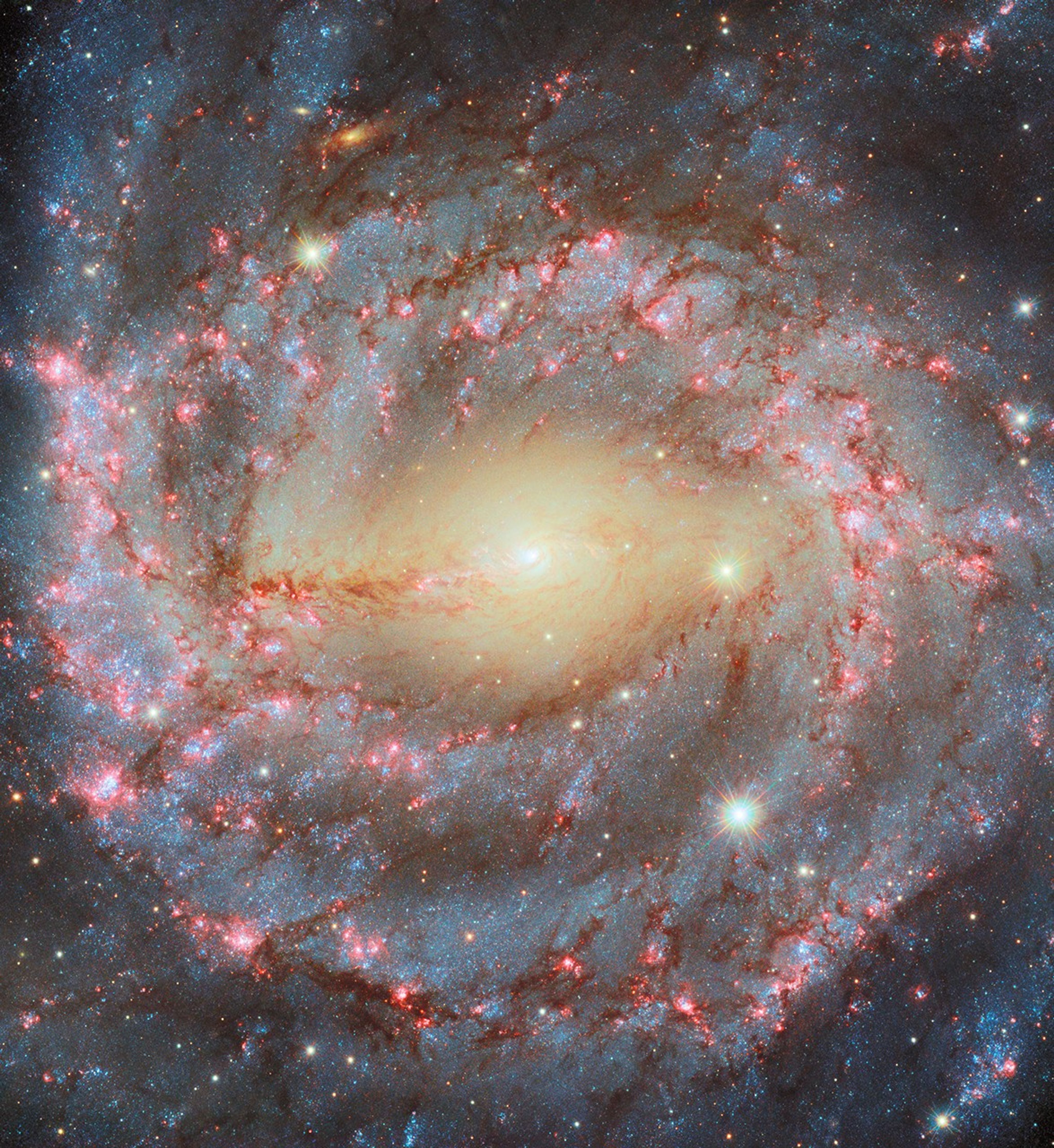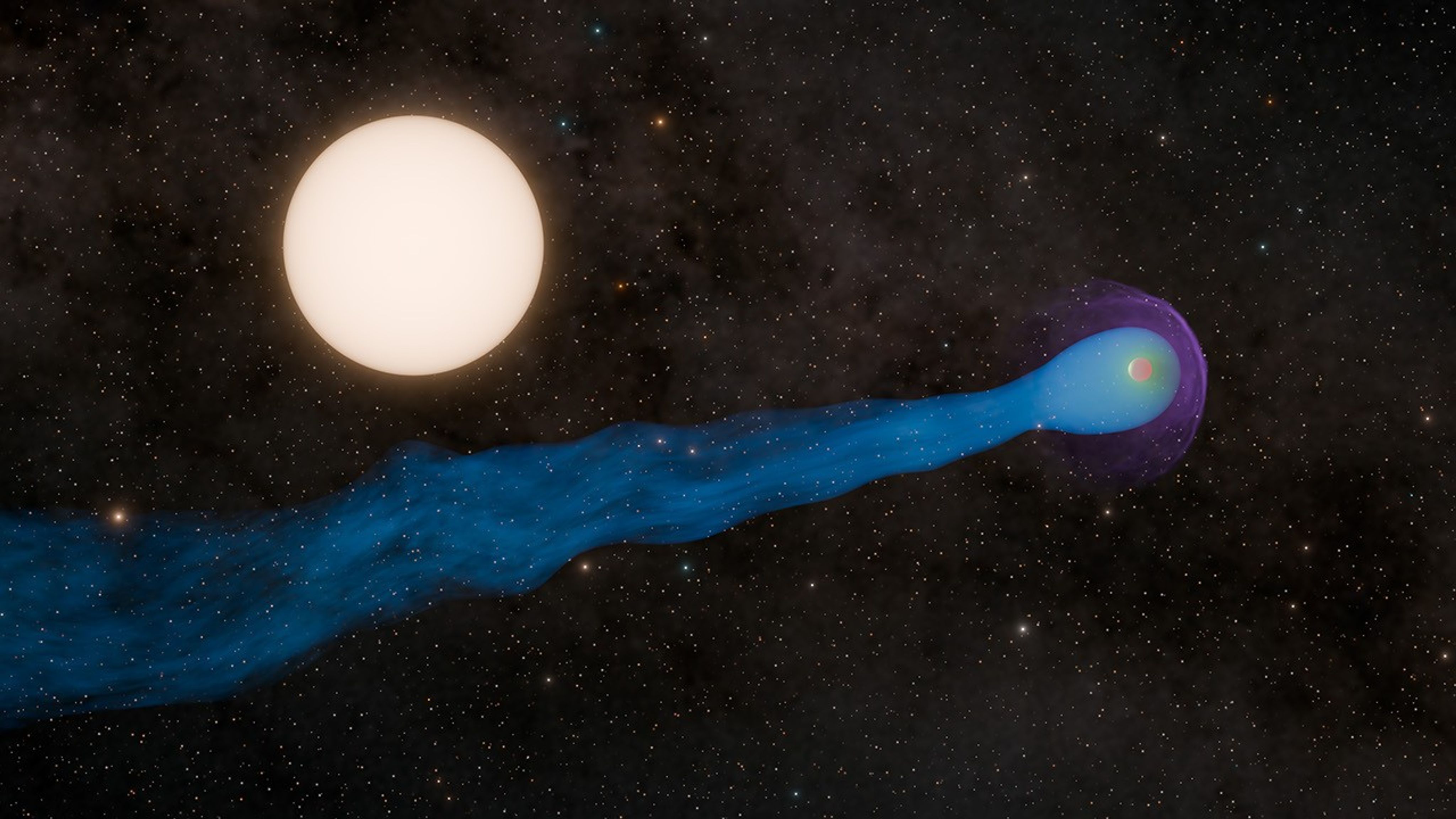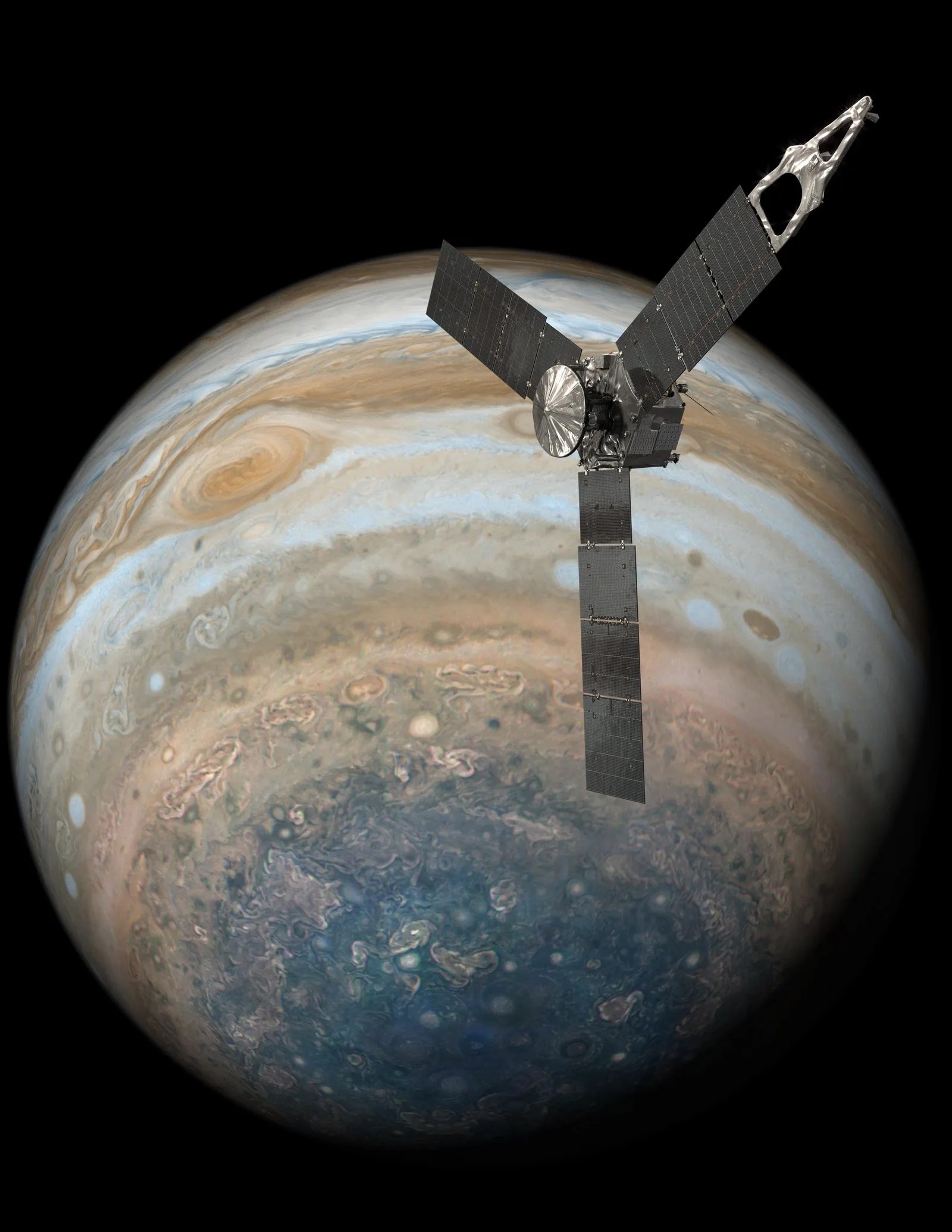1 min read

Scientists were excited to discover clear skies on a relatively small planet, about the size of Neptune, using the combined power of NASA's Hubble, Spitzer and Kepler space telescopes. The view from this planet -- were it possible to fly a spaceship into its gaseous layers -- is illustrated at right. Before now, all of the planets observed in this size range had been found to have high cloud layers that blocked the ability to detect molecules in the planet’s atmosphere (illustrated at left).
The clear planet, called HAT-P-11b, is gaseous with a rocky core, much like our own Neptune. Its atmosphere may have clouds deeper down, but the new observations show that the upper region is cloud-free. This good visibility enabled scientists to detect water vapor molecules in the planet's atmosphere.
Image credit: NASA/JPL-Caltech







